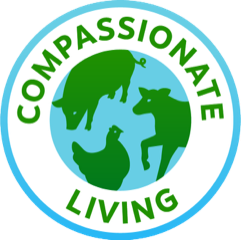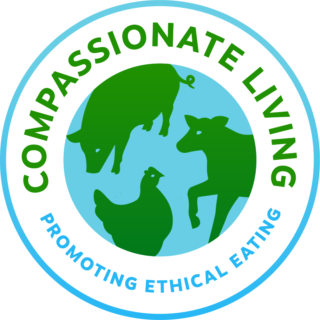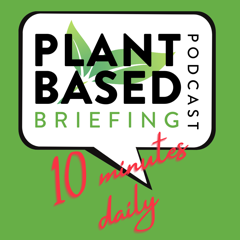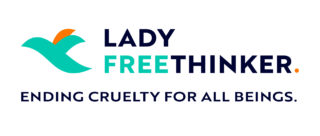Podcast Transcript
Hope
Welcome to the Hope for the Animals Podcast sponsored by United Poultry Concerns. I’m your host, Hope Bohanec. And you can find all our past shows at hope for the animals podcast.org and I welcome your questions and comments. My email is hope at UPC- online.org. This is the sixth segment of a series we’re calling the reason for vegan series, that is supplemental to our full episodes. And in the short chats, I’m focusing in on certain aspects of the animal agriculture industry. And today I’m going to talk about cows who are exploited in the dairy industry, and the hidden cruelties of cow dairy products like milk and yogurt and cheese.
Even though we focus on birds at UPC, we care about all farmed animals, and many people still don’t understand the cruelty to cows in the dairy industry. And since this is the reason for vegan series, I wanted to talk about all aspects of veganism. And so I want to talk today about cows and the dairy industry, because dairy products can be one of the hardest things for people to eliminate and replace in their diet, especially cheese. So it’s really important to understand the misery cows endure in the dairy industry from the beginning of their lives to the end.
So I’m going to focus in on what I think are two of the worst aspects of the dairy industry. And this is across the board for all operations, even if they have humane and organic labels, it doesn’t matter. These two things are universal to dairy production, no matter the label. Cows, like all mammals, humans included, only produce milk when they’re pregnant and have given birth. So the dairy cows are kept pregnant through artificial insemination. And the babies are taken from them at birth. These two violations, I think, are really two of the worst, and they are physically and psychologically horrible to endure. So I’m going to go into some detail about these two aspects.
So let’s start with artificial insemination. To produce enough dairy for profit, the cows basically have to be kept pregnant and have just given birth, that’s when they give the most milk and it is extremely rare for cows, or many farmed animals to mate naturally, so she is artificially inseminated. The sperm is collected from a bull who is masturbated. Let’s think about that for a moment. And that’s a whole other horror. Anyway, and then to inseminate the cow with the collected sperm, the worker will insert their arm down into the cow’s rectum up to their shoulder. Yes, I said that right into her rectum. Their entire arm and then with the other arm, they insert the sperm with a long metal tube often called a sperm gun into her vagina. And they then manipulates her inside with their inserted hand to get the sperm to go where it will have the most chance for successful pregnancy. So it’s truly disgusting. I mean, just describing it is just horrible. I it’s so amazing to me that we’re actually talking about food when we’re talking about these terrible things that are done to animals. If you haven’t ever seen this procedure, I really encourage you to watch this process on video. But be warned, it’s bizarre. It’s gross. When my husband, Cogen, and I were researching artificial insemination for our book, The Ultimate Betrayal, I remember him being really disturbed by this. I mean, I was too. It’s a terrible sexual violation.
And then, just as terrible a violation happens when the baby calf is born. The baby is taken away from her mother, right at birth or very soon after. Dragged away while she is still wet with birth fluid. This has got to be so frightening and traumatic for the baby and for the mother cow. I mean what does a baby, any baby, what does a baby want and need the comfort and love of their mother? They’re frightened and only a mother’s love can comfort and soothe them and what does a mother want? To comfort and love and protect their newborn?
I have seen such horrible videos, probably hundreds of them over the years by now of mother cows crying out and running after their babies as they’re dragged away in just severe distress at this separation. I’ve even seen videos of cows running toward and attacking the workers while they’re dragging their babies away, trying to protect their babies and get their babies back.
So I live in Northern California and there are a ton of dairy farms up and down the Marin County and Sonoma County areas that are the supposedly humane farms, the small scale type with organic labels and certified humane labeling. I have seen the rows and rows of what are called calf hutches, they’re basically a plastic, like a white plastic dog house, where they take the newborn baby females and pin them or chain them in these calf hutches. And there’s just rows and rows of these, hundreds of them on all these farms, with the organic labeling and certified humane labeling, and these babies are ripped from their mothers at birth. They are separated from their moms. They’re separated from other cows. They’re confined where they get no exercise, no ability to frolic in the field. They’ll never suckle their mother’s utter, and this is where they stay day in and day out, until they’re big enough for their first artificial insemination.
Half the babies born Of course, are males and they don’t produce dairy. So they are worthless to the industry. And after they’re ripped from their mothers, they’re taken off the farm to be sold at auction for veal or beef. I remember one farm that I went to and looked around actually walked around, there was this little newborn, he was curled up in a mud puddle, and he was soaking wet, either from his birth fluid because he was just newly born, or from the mud that he was in. He was shaking and seemed confused and frightened and he would frantically look around in desperation and then kind of give up and put his head down and his curled up legs. He had been separated from his mother, separated from the females that were on the other side of the farm in the hutches. So I assumed that he was a male and he was waiting for the transport truck to take him to auction. It was one of the saddest things I’ve ever seen.
And this is where the veal industry gets most of their babies. Of course, veal is a slaughtered baby calf, who has been so tightly confined and fed an anemic diet so that their muscles are so underdeveloped, that you can cut the meat with a fork. That’s why it’s considered a delicacy but it is really just the cruel reality of veal. Many people recognize the cruelty of veal and would never order veal or buy veal, but they have no idea that the dairy industry is where all those baby male veal calves are coming from and just how interconnected these two industries are. Supporting one supports the other.
UPC’s Karen Davis has written about the dairy industry and she wrote, quote, all I ever had to see of the dairy industry to hate it, were images of calves torn from their mothers to be isolated, trembling in solitary crates and hutches. All I ever had to hear were the mothers crying for their stolen newborns. This is not just big dairy operations. It is dairy farming.
So like hens manipulated for excessive egg production, dairy cows, they’ve also been genetically manipulated over generations to give tons more milk than they would naturally and they’ve developed all kinds of problems: osteoporosis, painful lameness, and you throw in the filthy, confined conditions, and they have all kinds of illnesses, including mastitis. Mastitis is a painful infection of the udder.
So there’s something interesting to note here for dairy production. In particular, when we’re talking about organic dairy, organic dairy can be even worse for the cows and here’s why. In conventional dairy, because of the terrible conditions, the psychological trauma, all that we’ve been talking about here, all the cows have to endure, they are given tons of pharmaceuticals and antibiotics for a variety of reasons and numerous ailments, including to clear up cases of mastitis, which is very common in dairy production. But with organic standards, workers aren’t allowed to medicate the cows. Because then they couldn’t sell that milk as organic. She would have to be taken out of production to be able to clear up any infections or illnesses and they don’t. So cows can have painful mastitis with their utters swelling, they can have open sores on their utters. It can be very painful to be milked when they have a case of mastitis. And organic farms do nothing.
When I was researching my book, I spoke with a dairy cow veterinarian, and he confided in me that he was seeing some of the worst cases of mastitis with cows in severe pain at milking on new organic farms, something he hadn’t seen in decades. So this is an instance where the humane labeling not only means nothing, which is generally the case, it’s just neutral, with no difference from conventional, but here’s a case where organic labeling can actually be worse. Where you would think the animals would be treated better, but the cows can be suffering and even more misery.
So in just a few years, between about two and four years old dairy cows are what the industry terms “dried up”. The toll of the miserable conditions and the psychological trauma and having so many babies taken from them, it causes their milk yield to drop. And the operation has so many baby girl cows, because of all the births that will give more milk, so it’s not profitable to keep her. Dairy cows don’t get a retirement plan. And even though they could live to be 15 or 20 years old, they are generally slaughtered before their fifth year of life.
Low quality meats, fast food, hamburgers, ground beef, these meats often contain the flesh of dairy cows. The slaughter of these huge animals is torturous. And of course, this goes for beef cows as well. When they are brought to the slaughterhouse after long hours and days of transport with no food or water in all extremes of weather, they’re exhausted, many of them are sick from the traveling. They often know what’s about to happen to them. I mean, the smells, the sounds of death are surrounding them as they’re entering the building and panic can run through the group of cows and they start trying desperately to escape what’s happening to them. But there are workers there to jab them with sticks, electrocute them with electric prods, forcing them to go deeper into this terrifying building.
So cows are supposed to be stunned with a stun gun before they are slaughtered. It’s called a captive bolt gun that drives a thick metal rod into their brain, which is supposed to render them unconscious. But the line moves so fast and the animals are frantic and jerking around and the workers often miss and just injure the animals without rendering them unconscious. So you know, now she’s in severe pain from this botched stunning. She’s freaked out, and next they put a chain around one of her back legs and hoist her upside down. This is torturous for this heavy animal. So, like turkeys, because they are so much heavier than they would be naturally. Their legs joints will just dislocate out of the sockets from their excessive weight, and they kick and struggle and their throat is slit and it can take agonizing minutes for their blood to drain out and for unconsciousness to finally come.
How anyone can ever say that there is such a thing as humane slaughter. It’s impossible. And it’s never the way that it’s done in these slaughterhouses where all the animals go, no matter the label, the humane, the organic, all go to the same slaughterhouses and it is a brutal, horrible death.
So, there is some good news though. And the good news is that many people are choosing cow dairy alternatives right now. The non-dairy milk sector is 14% of the market and that’s huge. So there’s the usual soy milk and almond milk and oat milk. And these are all delicious. But you also have hemp milk and hazelnut milk and cashew milk and pea milk. Ripple brand is a pea protein. So there are just so many to choose from. If you don’t like the taste of one, try another one. Because they’re all so different. There aredifferent varieties, there are different thicknesses, different flavors, some are sweet with vanilla, you can get plain, chocolate, there’s just so many different options. There are just about as many different yogurts and ice creams to try as well.
You can also find dairy free cream cheese, sour cream, whipped cream, and just recently, I believe it was Carnation that came out with a vegan heavy whipped cream for baking. So there’s a non-dairy substitute for everything.
Vegan cheeses are getting so good too. And again, if you don’t like one try another because they’re all very different. You’re going to get a wider selection at a natural foods store. But every major grocery store now carries at least some of these options.
Eating animal free dairy products is a great way to show your compassion for animals, and it’s so much better for the planet. It helps to curb climate change, it’s better for your body. Cow’s milk doesn’t do anybody any good, especially the cow.
Thank you for listening to the reason for vegan series. If you appreciate this series, you can help us out by leaving a positive rating or review wherever you listen to your podcasts. And please help protect all farmed animals and live vegan.




